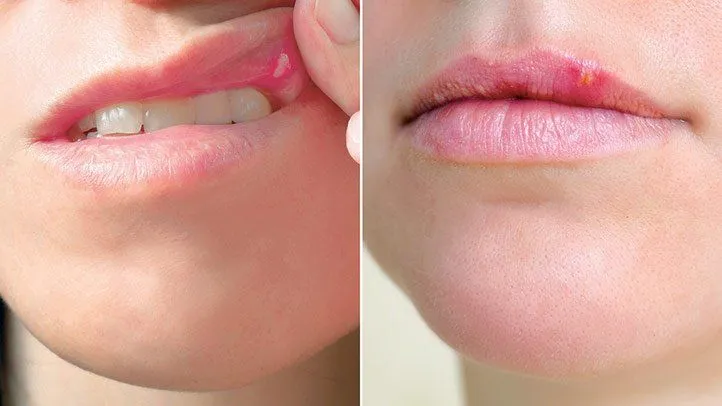
Canker sores and cold sores are common oral conditions, but they differ in their causes, appearance, and treatments. Understanding these distinctions is key to managing and alleviating discomfort associated with these sores.
Canker Sores: Canker sores, also known as aphthous ulcers, are small, shallow lesions that develop inside the mouth, often on soft tissues like the inner lips, cheeks, or tongue. These sores are not contagious and typically appear as white or yellowish with a red border. They can be triggered by factors like stress, injury from dental work, or certain acidic or spicy foods. While they usually heal on their own within a week or two, over-the-counter topical treatments or mouth rinses can help alleviate discomfort.
Cold Sores: Cold sores, also referred to as fever blisters, are caused by the herpes simplex virus type 1 (HSV-1). They appear as fluid-filled blisters on the lips, around the mouth, or occasionally on the nose. Unlike canker sores, cold sores are contagious and can be transmitted through direct contact. These sores go through stages, starting with tingling or itching before the blisters form, break, and eventually crust over. Antiviral medications or topical creams can help reduce symptoms and speed up healing.
Treatment and Care: For canker sores, maintaining good oral hygiene practices, avoiding triggering foods, and using over-the-counter remedies can help manage discomfort. Applying topical anesthetics or corticosteroids may also provide relief. Cold sores often require antiviral medications prescribed by a healthcare professional to reduce the severity and duration of outbreaks. It’s important to refrain from picking or touching cold sores to prevent further spread of the virus.
Prevention and Management: Practicing good oral hygiene, managing stress levels, and avoiding triggers like acidic foods or trauma to the mouth can help prevent canker sores. To minimize cold sore outbreaks, individuals should be cautious during times of stress or illness, use sunscreen on the lips to prevent sun-induced outbreaks, and avoid sharing personal items like utensils or lip balms during an outbreak to prevent transmission.
In conclusion, understanding the differences between canker sores and cold sores is essential for proper management and treatment. If you have concerns or experience frequent outbreaks, White Flint Dental Associates can provide guidance and support to manage these oral conditions effectively.